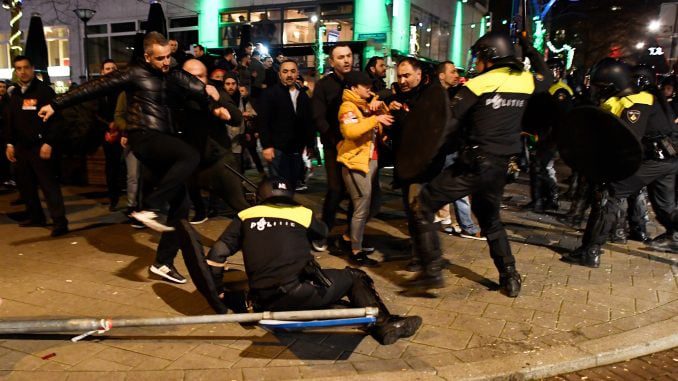
March 2017 is an uncomfortable time to be a European. Almost wherever you look, traditional certainties are unraveling in the face of a perfect storm of crises.This week Britain will start its departure from the European Union. A second referendum on Scottish independence will likely follow, and Northern Ireland may leave the UK and join the Irish Republic.In Holland, right-winger Geert Wilders and his Freedom Party picked up seats, but not enough to ascend to power. In France, Marine Le Pen and her National Front will almost certainly finish second in the presidential elections this spring, although she will likely lose the second round.Elsewhere in Europe, worries about an increasingly assertive Russia still dominate. Sweden this month announced it is reintroducing conscription. Finland is conducting military exercises. In the Baltic states, NATO is in the midst of its largest European deployment since the Cold War.Not everything is collapsing quite as fast as naysayers might suggest. In Germany, the far-right Alternative for Deutschland party has grown fast, particularly in the East. But it still seems unlikely to grab genuine political power in the German federal election in September.It’s a reminder of just how much Europe’s hard right is struggling. Europe’s left remains in disarray witness the travails of Britain’s Labour Party, or the French socialists. Still, only two European countries Hungary and Poland have governments that could be described as seriously right-wing.Europe may not be unraveling, but it does seem in a state of semi-permanent crisis. For almost a decade, European “crisis summits” in which leaders convene over a weekend to talk over issues have been the norm. At both a national and regional level, Europe’s leaders appear to be suffering a crisis of confidence, popularity and at worst political legitimacy.Europe’s state of uncertainty is something Russian President Vladimir Putin has exploited. There are plenty within the national security establishments of both Europe and the United States who believe Russia’s intervention in Syria was partly designed to ramp up the refugee crisis, straining Europe’s politics to its limits.Events in the United States have arguably added to that uncertainty. In an interview with Reuters last month, President Donald Trump surprised some by expressing his support for the European Union. That’s a view shared by much of the U.S. foreign policy establishment, if only because they fear the consequences if the EU unravels. Some of those around Trump, however particularly strategist Steve Bannon would love to see it fail.Terror attacks in Brussels, Nice, Berlin and elsewhere fuel a sense of division wildly out of proportion to the threat. The real question is whether that narrative becomes entirely self-fulfilling. Right now, Europe’s institutions have the distinct smell of collapse around them, but their resilience so far at least remains striking.The various European projects now under pressure the EU, NATO, the single currency are imperfect. But they have also delivered some remarkable results, not least keeping the peace on the continent for more than six decades and broadly, at least delivering effective welfare and rights to their people.European liberal democracy is often hypocritical, and sometimes ineffective. But by and large, the citizens of EU countries have spent recent decades protected from some very bad things, in particular excesses of state power, something not true of Putin’s Russia let alone the fascist regimes of the thirties or Soviet-dominated governments that ruled Eastern Europe throughout the Cold War.Europe is certainly becoming a less friendly continent, particularly for those who are different as refugees now held in increasingly horrific conditions in the EU border states such as Serbia have noticed. So have migrant communities across the EU.It’s hard to say where things go from here. While the institutions of European integration offer the best hope, countries can hardly be blamed for taking matters into their own hands when it comes to defending themselves. An article in the Economist last week asked whether Germany might be willing to break one of its last and greatest taboos, and launch its own nuclear weapons program to protect itself against an ever more uncertain future.Somehow, Europe has to convince itself things are not quite as bad as they look and find some optimistic route forward. Otherwise they might get worse than anyone is willing to contemplate.Peter Apps is Reuters global affairs columnist, â¨a member of the British Army Reserve and the â¨UK Labour Party. The opinions expressed here â¨are his own.



